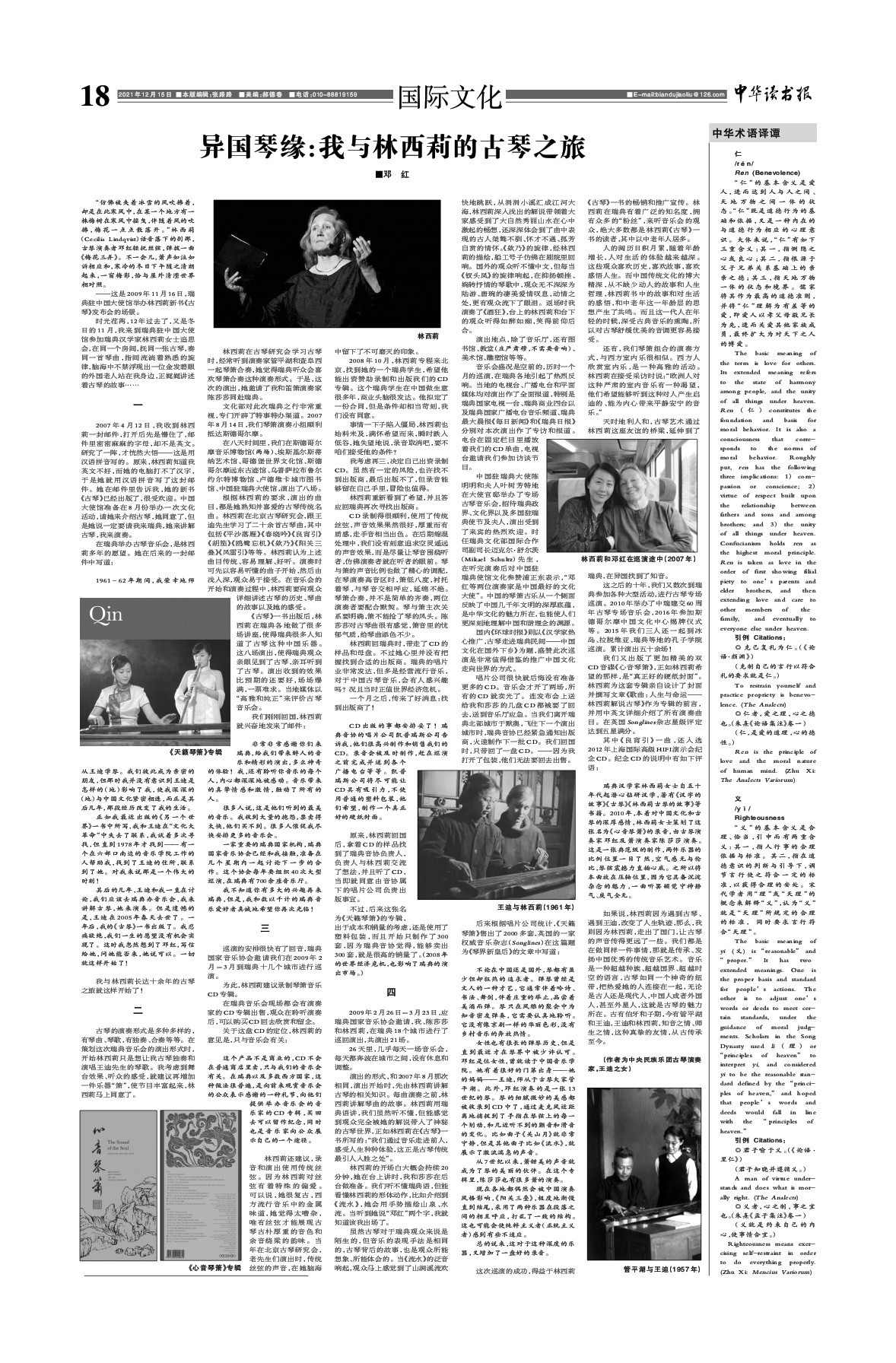仁
/rén/
Ren (Benevolence)
“仁”的基本含义是爱人,进而达到人与人之间、天地 万物之 间一体的 状态。“仁”既是道德行为的基础和依据,又是一种内在的与 道德行为相应的心理意识。大体来说,“仁”有如下三重含义:其一,指恻隐之心或良心;其二,指根源于父子兄弟关系基础上的亲亲之德;其三,指天地万物一体的状态和境界。儒家将其作为最高的道德准则,并将“仁”理解为有差等的爱,即爱人以孝父母敬兄长为先,进而关爱其他家族成员,最终扩大为对天下之人的博爱。
Thebasic meaning of the term is love for others.Its extended meaning refers to the state of harmony among people, and the unity of all things under heaven.Ren ( 仁 ) constitutes the foundation and basis for moral behavior. It is also a consciousness that corre-sponds to the norms of moral behavior. Roughly put, ren has the following three implications: 1) com-passion or conscience; 2)virtue of respect built upon the relationship between fathers and sons and among brothers; and 3) the unity of all things under heaven.Confucianism holds ren as the highest moral principle.Ren is taken as love in the order of first showing filial piety to one’s parents and elder brothers, and then extending love and care to other members of thefamily, and eventually to everyone else under heaven.
引例 Citations:
◎克己复礼为仁。(《论语·颜渊》)
(克制自己的言行以符合礼的要求就是仁。)
To restrain yourself and practice propriety is benevo-lence. (The Analects)
◎仁者,爱之理,心之德也。(朱熹《论语集注》卷一)
(仁,是爱的道理,心的德性。)
Ren is the principle of love and the moral nature of human mind. (Zhu Xi:The Analects Variorum)
义
/yì/
Righteousness
“义”的基本含义是合理、恰当,引 申而有两重含义:其一,指人行事的合理依据与标准。其二,指在道德意识的判断与引导下,调节言行使之符合一定的标准,以获得合理的安处。宋代学者用“理”或“天理”的概念来解释“义”,认为“义”就是“天理”所规定的合理的标准,同时要求言行符合“天理”。
Thebasic meaning of yi (义) is“reasonable”and“proper.” It has two extended meanings. One is the proper basis and standard for people’s actions. The other is to adjust one’s words or deeds to meet cer-tain standards, under the guidance of moral judg-ments. Scholars in the Song Dynasty used li ( 理 ) or“principles of heaven”to interpret yi,and considered yi to be the reasonable stan-dard defined by the“princi-ples of heaven,”and hoped that people’s words and deeds would fall in line with the “principles of heaven.”
引例Citations:
◎君子喻于义。(《论语·里仁》)
(君子知晓并遵循义。)
A man of virtue under-stands and does what is mor-ally right. (The Analects)
◎义者,心之制,事之宜也。(朱熹《孟子集注》卷一)
(义就是约束自 己的内心,使事情合宜。)Righteousness means exer-cising self-restraint in order to do everything properly.(Zhu Xi: Mencius Variorum)



 上一版
上一版


 缩小
缩小 全文复制
全文复制